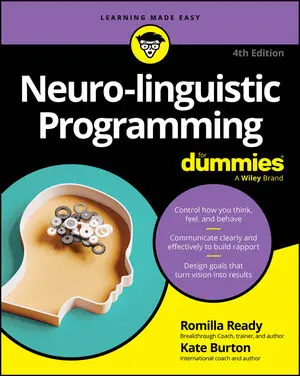As you navigate your way through an average day you're faced by a constant barrage of questions: shall you do this or that, go here or there, speak to this person or that one, buy this brown loaf or that white roll? Some decisions are obviously insignificant — hey, splash out, have a wholemeal sandwich today and a white bap tomorrow — but life-changing choices take more careful thought.
When you're taking important decisions, one option is to ask someone else for her advice rather than find your own way through. Doing so rarely works out.
Another, more helpful, option is to become your own neuro-linguistic programming (NLP) coach by honing your self-questioning skills and building a personal repertoire of useful questions. A skilled NLP coach is a master at powerful questions — those that make you stop and think deeply for yourself.
Consider the most important question you've ever been asked or an important question you've asked yourself; for example, how do you get to do work you love, shall you change where you live, what would happen if you made a life-long commitment to this person or what is the meaning of life? Now think about what enabled you to make a good decision based on your response to that question. Maybe you asked yourself, 'What's the worst/best thing that could happen'? or the classic NLP question, 'What do I want'?
If you're facing a situation that's making you feel anxious and you don't know what to do, ask yourself, 'What do I know to be true right now'? Doing so will enable you to avoid catastrophic thinking and focus on the decision you need to make right now based on reality rather than the notions of an over-active imagination.
A friend has been happily married for 11 years to a man who some people feared was unsuitable: he came from a completely different culture and spoke very little English. When considering whether to commit to this relationship, she apparently asked herself, 'What if I just assume it doesn't have to be forever, and we can just have fun for five years?' Looking at the situation in this way enabled her to take the first step.
To gain a sense of perspective, get into the habit of asking yourself appropriate questions when you're feeling overwhelmed or unmotivated and facing key decisions and difficult conversations — even when the decision is as simple as, 'What bread would I like today'?





